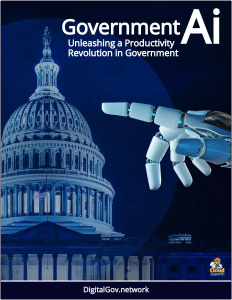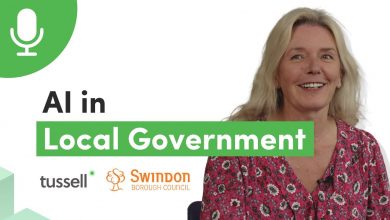Peter Kyle and Tony Blair: How Will AI Transform Government
From personalising education to revolutionising government processes, AI will change everything.
 In conversation with the Secretary of State for Science, Innovation and Technology, Peter Kyle, at the inaugural SXSW London, TBI Executive Chairman Tony Blair discusses how governments should embrace the 21st-century technological revolution to deliver transformative change for their citizens.
In conversation with the Secretary of State for Science, Innovation and Technology, Peter Kyle, at the inaugural SXSW London, TBI Executive Chairman Tony Blair discusses how governments should embrace the 21st-century technological revolution to deliver transformative change for their citizens.
On June 5, 2025, the Tony Blair Institute for Global Change hosted a compelling discussion titled “How Will AI Transform Government?” featuring former UK Prime Minister Tony Blair and Peter Kyle, the current Secretary of State for Science, Innovation, and Technology.
The conversation offered a visionary exploration of AI’s potential to reshape public services, streamline governance, and address pressing societal challenges. Below, we review the key themes, insights, and implications of this significant dialogue, which underscores the Labour government’s ambition to position the UK as an “AI superpower.”
A Vision for AI-Driven Governance
The talk opened with a shared optimism about AI’s transformative power. Blair, once famously tech-averse during his premiership (he reportedly never carried a mobile phone), has become a fervent advocate for AI’s role in modernizing government.
He argued that AI represents a “game-changer” capable of revolutionizing public services, from healthcare to education, and addressing systemic inefficiencies. Kyle echoed this sentiment, emphasizing that AI is central to the Labour government’s agenda to boost economic growth and improve public services. Their discussion framed AI not merely as a technological tool but as a catalyst for reordering the state to be “smaller, more strategic, and providing greater efficiency at lower cost.”
Blair’s vision, informed by reports from his think tank, the Tony Blair Institute (TBI), highlighted specific applications of AI. He pointed to potential savings of £200 billion over five years through AI adoption in public services, citing tools like personalized Digital Public Assistants, Multidisciplinary AI Support Teams, and National Policy Twins to streamline administrative tasks and policy planning. Kyle, drawing from personal experience, noted AI’s potential in healthcare, suggesting that advanced diagnostic tools could have detected his late mother’s lung cancer earlier, saving lives and reducing costs.
Digital ID and Public Sector Efficiency
A significant portion of the discussion focused on digital identification as a backbone for AI-driven governance.
Blair advocated for a robust digital ID system, arguing it could tackle issues like immigration control, benefit fraud, and access to services. He suggested that digital IDs could process the “vast flow of people coming through our borders” and ensure that only eligible individuals access public benefits, signaling a tougher stance on immigration.
Kyle supported this, noting that the government is launching a digital wallet in June 2025 to store documents like driving licenses, with “nothing off the table” for further applications. However, Blair acknowledged a looming “big debate” on privacy versus efficiency, suggesting that the public might be willing to trade some privacy for enhanced service delivery.
Challenges and Criticisms
While the talk was optimistic, it also touched on challenges. Blair and Kyle recognized the need for significant investment—potentially £4 billion annually—to overhaul legacy digital infrastructure and train workforces.
Critics, including tech consultant Rachel Coldicutt, have warned that such costs may not yield immediate returns, questioning whether funds could be better spent elsewhere. Additionally, concerns about digital exclusion were raised, with nearly a third of disabled people and half of those over 65 rarely using the internet, potentially leaving vulnerable groups behind in an AI-driven system.
The discussion also addressed criticisms of the government’s close ties to Big Tech. Kyle’s 28 meetings with tech sector representatives in six months have drawn scrutiny, with some arguing that smaller AI firms are being sidelined. Reports have also questioned the reliability of TBI’s data, with allegations that some figures supporting the UK’s AI push were generated by ChatGPT, raising concerns about policy rigor.
Balancing Innovation and Regulation
Kyle emphasized a “pro-innovation” approach, including plans for a national data library and long-term R&D funding to bolster the UK’s tech sector. However, he stressed the need for balanced regulation to address public concerns, such as job displacement (45% of Britons fear AI-related job losses) and loss of human creativity.
Blair urged politicians to deepen their understanding of AI, warning that nations failing to harness it risk falling behind. Both speakers highlighted successful international examples, like South Korea’s Seoul Talk and Portugal’s Automatic Social Energy Tariff, as models for AI-driven public services.
Looking Ahead
The talk concluded with a call to action for governments to act swiftly. Blair’s evangelical zeal for AI, combined with Kyle’s policy focus, painted a picture of a future where AI could save billions, enhance services, and drive economic growth. However, the path forward requires navigating technical complexities, public skepticism, and ethical concerns. As Kyle noted, regulation must be “right on time” to avoid stifling innovation or compromising rights.
The dialogue between Peter Kyle and Tony Blair was a clarion call for embracing AI to transform governance. It highlighted both the immense potential and the significant challenges of integrating AI into public services. While their vision is ambitious, the success of this transformation will depend on addressing digital exclusion, ensuring robust regulation, and maintaining public trust.
As the UK moves toward its goal of becoming an AI superpower, this conversation serves as a critical starting point for reimagining the state in the 21st century.




